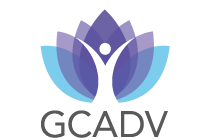Training
We empower survivors and the programs that serve them, we educate the public, and we advocate for responsive public policy. Our strength is in numbers, as we collaborate throughout Georgia to stop domestic violence.
Technical Assistance
Providing hands-on guidance and support to domestic violence programs across the state to ensure high quality care as they work directly with survivors of domestic violence and their families.
Public Policy and Advocacy
Ensuring that the interests and rights of domestic violence survivors are protected and upheld.
Statewide Outreach
Ensuring communities across the state are engaged, informed, and motivated to create change in the prevention, intervention, and response to domestic violence.
GCADV is also engaged in a variety of statewide collaborative projects designed to a) support the unique needs of historically marginalized communities, b) analyze and address trends and service barriers, c) assist victims with self-sufficiency goals, and d) provide coordinated access to shelters throughout the state.
- 24-Hour Statewide Hotline: Providing coordinated access to safety and support.
- BRIDGES Deaf Advocacy Program: Provides culturally-specific and accessible advocacy services to Deaf and hard of hearing survivors of domestic violence in the Metro Atlanta and Rome areas.Connecting Deaf survivors with the community of support they need to build lives free from domestic violence.
- For more information contact the program manager, MeLisa Dennis, at mdennis@gcadv or 404-381-8282 (videophone).
- Community Engagement Project: Engaging communities and stakeholders to ensure access to safe, compassionate care and justice for all victims. This involves Community Conversations, specialized trainings, and the Community Rise Project.
- Child & Youth Project: Providing training opportunities, technical assistance and resources for therapists and child advocates to ensure children and youth exposed to domestic violence are receiving services rooted in best practices.
- Justice for Incarcerated Survivors Project:Working for the release of incarcerated survivors imprisoned for hurting or killing their abusive partner or committing a crime under duress from their abusive partner.
- Economic Justice Initiative: Working with diverse systems, stakeholders, and social justice movements to achieve policies that create greater economic equality for survivors and centers their input towards meaningful, individualized, and financially sustainable futures.
